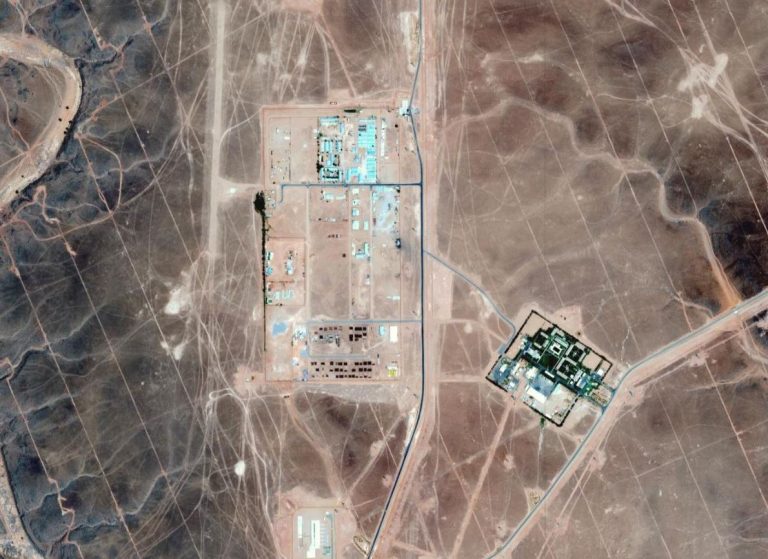In the ever-evolving landscape of global marketing, Libya presents a unique and largely untapped opportunity. As the nation continues to rebuild and redefine itself post-conflict, there’s a growing appetite for new products, services, and ideas. This makes Libya an intriguing prospect for businesses looking to expand their horizons and tap into a market rich with potential.
We must understand the cultural nuances and economic dynamics at play to succeed in this emerging market. Libya’s diverse population, with its mix of traditions and modern influences, offers a fertile ground for innovative marketing strategies that resonate on both local and international levels. By embracing these complexities, we can craft campaigns that not only capture attention but also build lasting connections.
As we delve deeper into Libya’s marketing landscape, we’ll explore the challenges and opportunities that lie ahead. By doing so, we can equip ourselves with the insights needed to navigate this promising market effectively.
Table of Contents

Overview Of Libya Marketing
Libya presents unique marketing opportunities as it rebuilds its economy. Businesses, looking to leverage these opportunities, need to understand not just the economic landscape but also the cultural intricacies. Critical aspects include the diverse consumer demographics and the evolving regulatory environment.
Since Libya’s population is a mix of various ethnic and cultural backgrounds, marketing strategies must reflect this diversity. Customised approaches ensure that communications resonate with each segment. For example, incorporating local languages and cultural symbols into campaigns can enhance engagement.
Economic factors, such as Libya’s reliance on the oil sector, influence marketing dynamics. Firms should explore sectors experiencing growth, such as technology and infrastructure. Understanding these trends helps in developing relevant value propositions.
Challenges in the Libyan market include regulatory changes and infrastructure limitations. These factors require navigation through strategic planning. Collaborations with local entities and experts can aid businesses in overcoming these barriers.
Positioning ourselves effectively in this environment involves leveraging local expertise and partnerships. As a Tripoli-based consulting firm, we offer specialised insights, guiding organisations in risk management, strategy, and operations. Our tailored solutions aim at enabling our clients to excel in this burgeoning market.

Key Trends In Libya Marketing
Libya’s marketing landscape is undergoing significant changes. As the country embraces new opportunities, businesses can leverage these trends to enhance their strategies.
Digital Transformation
The digital marketing transformation is reshaping marketing practices in Libya. Businesses are increasingly adopting digital tools and platforms to reach audiences more efficiently. The proliferation of smartphones has facilitated this shift, making mobile marketing a critical focus. Social media platforms, such as Facebook and Instagram, serve as vital channels for brand engagement and customer interaction. As digital literacy grows, creating content that’s mobile-friendly with engaging visuals becomes essential.
Consumer Behaviour Shifts
Shifts in consumer behaviour are influencing marketing strategies in Libya. There’s a noticeable trend towards valuing convenience and instant access to services, which encourages businesses to consider online shopping options. This preference highlights the importance of e-commerce platforms and the need for seamless user experiences. Additionally, there’s increased demand for products and services that align with local cultural values. Understanding these shifts helps in crafting tailored messages that resonate well with our diverse audience, enhancing overall brand loyalty.

Strategies For Effective Marketing In Libya
In Libya, creating effective marketing strategies involves understanding local complexities and leveraging modern tools. By integrating cultural insights and digital platforms, businesses can effectively connect with Libyan audiences.
Understanding Local Culture
Grasping Libya’s local culture is crucial for marketing success. It’s important to incorporate regional languages and symbols to resonate with diverse ethnic groups. Acknowledging cultural norms can influence brand perception and acceptance, fostering deeper consumer connections. As we navigate these cultural landscapes, we create customised campaigns that reflect local traditions while aligning with consumer values.
Leveraging Social Media
Social media serves as a vital tool in Libya’s marketing landscape. Platforms like Facebook and Instagram offer expansive reach and engagement potential. Mobile marketing, driven by smartphone usage, enables businesses to connect with consumers instantly. Crafting targeted campaigns on these platforms allows us to engage effectively, boosting brand visibility and interaction. This digital approach benefits from local expertise, ensuring content aligns with cultural nuances, creating lasting relationships with the audience.

Challenges Faced By Marketers In Libya
Operating in Libya involves navigating a spectrum of challenges due to its unique market conditions and regulatory framework. Marketers must tackle these issues to succeed in this dynamic environment.
Economic Factors
Libya’s economy heavily depends on oil revenues, creating volatility and affecting purchasing power. Fluctuating oil prices impact disposable income, making consumer spending unpredictable. Additionally, the currency exchange rate can rapidly change, complicating pricing strategies. Sparse financial infrastructure means limited access to banking services hampers transactions, influencing marketing schemes.
Regulatory Hurdles
The regulatory framework in Libya is complex and often ambiguous. Frequent policy shifts require marketers to stay agile and adapt quickly. Inconsistencies in legislation between regions can result in compliance challenges, influencing campaign execution. Legal constraints on advertising content require careful handling to avoid fines or interruptions. Understanding these nuances is essential, and partnering with local experts like Qabas can help organisations navigate these regulatory hurdles proficiently without overt disruption to their marketing efforts.
Success Stories In Libya Marketing
Our exploration of Libya’s marketing landscape wouldn’t be complete without acknowledging the successes that inspire and guide new entrants. Several companies have excelled by tailoring strategies to fit Libya’s unique environment, offering valuable insights into effective marketing within the region.
- Localisation in Telecommunications: A telecommunications company achieved success by customising its offerings to Libya’s diverse demographics. Incorporating Arabic dialects in customer service and marketing materials helped them connect with a wide audience. This approach highlights the importance of cultural and linguistic adaptation in marketing strategies.
- Digital Transformation in Retail: A Libyan retailer tapped into the growing e-commerce trend by creating an online shopping platform. Leveraging social media channels like Facebook and Instagram, they engaged consumers through targeted promotions and influencer partnerships. This digital pivot demonstrates the critical role of online presence in modern marketing efforts.
- Partnerships in Tourism: A regional tourism agency partnered with local businesses to curate culturally immersive travel packages. By focusing on authentic experiences and collaborating with Libyan cultural experts, they attracted international tourists eager for unique insights into Libyan heritage. This initiative underscores the potential of synergy between sectors for mutual growth.
- Innovation in Financial Services: A financial services company capitalised on mobile banking to address the limited banking infrastructure in rural areas. Providing digital financial solutions enhanced accessibility and trust among customers. It showcases how technology-driven innovations can address market challenges and expand business reach.
- Emergence in Infrastructure Development: Collaborating with local authorities and businesses, an engineering firm succeeded in infrastructure projects pivotal to Libya’s reconstruction. Aligning with Libya’s national development goals, they strategically positioned themselves as crucial partners in rebuilding efforts. This emphasises the impact of aligning business objectives with national priorities.
By examining these success stories, we gain insights into effective strategies in Libya’s evolving market. As the landscape continues to mature, new opportunities arise for those willing to understand and adapt to local cultural and economic dynamics, positioning themselves as integral players in the market.
Conclusion
Libya’s marketing landscape presents a unique blend of challenges and opportunities that demand a nuanced approach. As the nation rebuilds and embraces new avenues for growth, understanding its cultural and economic dynamics is paramount for businesses aiming to succeed. By integrating local insights and leveraging digital platforms, we can craft effective marketing strategies that resonate with Libya’s diverse population.
The path to success in Libya involves not only recognising the potential in sectors like technology and infrastructure but also navigating the complexities of its regulatory environment. Through strategic partnerships and a commitment to cultural alignment, we can unlock the vast potential of this emerging market. The success stories we’ve explored serve as testament to the possibilities that await those willing to adapt and innovate within Libya’s evolving landscape.
Frequently Asked Questions
What are the main marketing opportunities in Libya?
Libya presents emerging opportunities in technology and infrastructure sectors as it rebuilds post-conflict. The increasing use of digital platforms, e-commerce, and mobile marketing highlights new avenues for engagement. By tailoring marketing strategies to Libya’s diverse cultural and demographic landscape, businesses can effectively captivate local audiences.
How important is understanding Libya’s cultural diversity in marketing?
Understanding Libya’s cultural diversity is crucial for effective marketing. Customised strategies incorporating regional languages and cultural symbols can resonate with different ethnic groups, ensuring campaigns are more relatable and impactful, thus enhancing brand loyalty among Libyan consumers.
What role do digital platforms play in Libya’s marketing landscape?
Digital platforms have become essential in Libya’s marketing landscape, with mobile marketing gaining prominence due to smartphone proliferation. Social media channels like Facebook and Instagram offer vital touchpoints for brand engagement, enabling businesses to connect efficiently with Libyan audiences.
What are the key challenges for marketers in Libya?
Key challenges include navigating Libya’s complex regulatory framework and economic volatility, which impact consumer spending and pricing strategies. Marketers must adapt to frequent policy shifts and regional inconsistencies, often requiring collaboration with local experts to effectively manage these issues.
How does Libya’s reliance on the oil sector affect marketing strategies?
Libya’s dependence on oil revenues influences purchasing power and consumer spending, requiring marketers to be agile in crafting strategies that accommodate economic fluctuations. Diversifying marketing approaches to include sectors like technology and infrastructure may reduce reliance on oil-centric strategies.
Why is local partnership crucial for successful marketing in Libya?
Partnering with local experts can help businesses navigate complex regulatory and cultural landscapes, ensuring more effective market entry. Local partners provide valuable insights into cultural nuances and policy environments, enabling tailored strategies that resonate with Libyan consumers.
How is consumer behaviour shifting in Libya?
Libyan consumers increasingly prioritise convenience and instant access to services, driving demand for e-commerce platforms. Businesses must align offerings with these preferences and incorporate cultural values to build trust and loyalty among local consumers.
Can you provide examples of successful marketing strategies in Libya?
Successful strategies include a telecommunications firm personalising offerings for diverse demographics, a retailer leveraging e-commerce and social media for engagement, and a tourism agency collaborating with local businesses for immersive experiences. These examples highlight the importance of cultural adaptation and digital integration.




